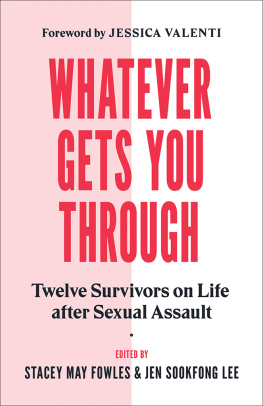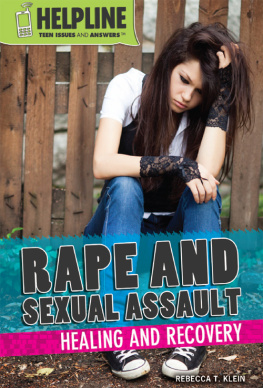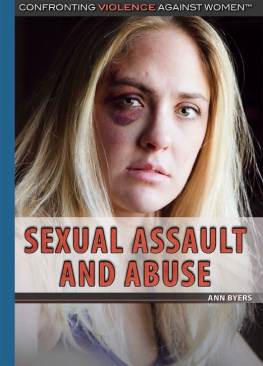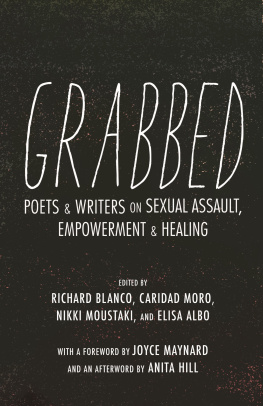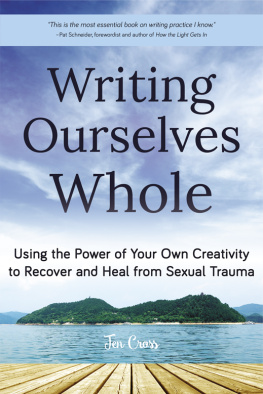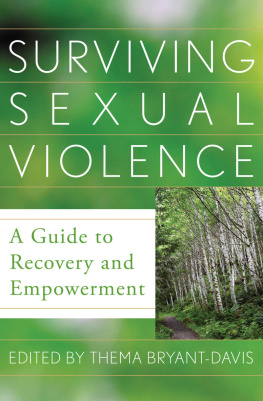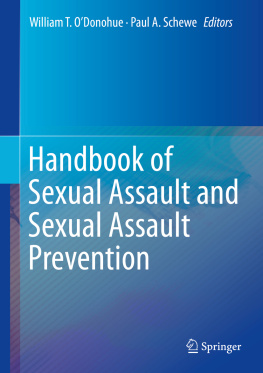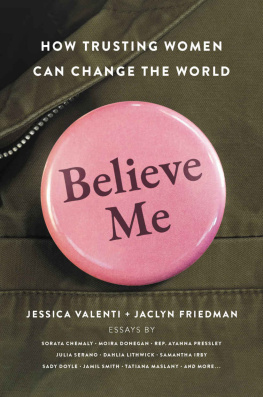EDITED BY
STACEY MAY FOWLES
& JEN SOOKFONG LEE
Foreword by JESSICA VALENTI

Collection and introduction copyright 2019 by Stacey May Fowles and Jen Sookfong Lee
Essays copyright 2019 by the authors
Foreword copyright 2019 by Jessica Valenti
All rights reserved. No part of this book may be reproduced, stored in a retrieval system or transmitted, in any form or by any means, without the prior written consent of the publisher or a license from The Canadian Copyright Licensing Agency (Access Copyright). For a copyright license, visit accesscopyright.ca or call toll free to 1-800-893-5777.
Greystone Books Ltd.
greystonebooks.com
Cataloguing data available from Library and Archives Canada
ISBN 978-1-77164-373-3 (pbk.)
ISBN 978-1-77164-374-0 (epub)
Copy editing by Shirarose Wilensky
Cover design by Briana Garelli
Text design by Nayeli Jimenez
Proofreading by Jennifer Stewart
Excerpt from I Am Draped in Heavenly Skin by Joshua Jennifer
Espinoza used with permission of the author.
Greystone Books gratefully acknowledges the Musqueam, Squamish, and Tsleil-Waututh peoples on whose land our office is located.
Greystone Books thanks the Canada Council for the Arts, the British Columbia Arts Council, the Province of British Columbia through the Book Publishing Tax Credit, and the Government of Canada for supporting our publishing activities.

To those who survived in whatever way they could.
To those who keep surviving every day.
To those who are still searching for a way to survive.
CONTENTS
, Jessica Valenti
, Stacey May Fowles and Jen Sookfong Lee
, Lauren McKeon
, Heather ONeill
, Alicia Elliott
, Juliane Okot Bitek
, Kai Cheng Thom
, Elly Danica
, Gwen Benaway
, Karyn L. Freedman
, Amber Dawn
, Soraya Palmer
, Leah Lakshmi Piepzna-Samarasinha
, Elisabeth de Mariaffi
FOREWORD
Jessica Valenti
I ts hard to be in this moment, yet again: a moment when the culture seems to have caught up to what feminists have been saying all alongthat things are bad, worse than you think. Because all of a sudden you have hopehope that things can get better, hope that maybe weve finally hit the tipping point on people believing women and all survivors of sexual assault.
But we know better. Those of us who write about feminism, or think about these issues, or walk through the world female know that no matter how many people come forward there is an unmovable fact: men believe other men, and they disbelieve survivors. No matter how many contrite apologies are issued by men who have been caught with their pants down, sometimes literally, they are continually given the benefit of the doubt. What does that leave us with?
In my worst moments, I think it leaves us with nothingthat were back where we started. In a time when abusers are outed every week and survivors are still blamed, its easy to feel as if weve made no progress at all. But thats not the truth. What we havewhat weve always had, and what we have today more than everis our voices. Our stories. The lives we live in spite of it all.
Our ability to continue to tell our stories in the face of disbelief and hatred is an incredible, powerful, hopeful thing. Because although sharing these experienceswhether in books, in a hashtag, or just in conversationis in part an act of solidarity, its also done with a glimmer of belief that things can be better.
After all, they cant call all of us liars.
They cant continue to say that its not that bad, or that the statistics around harassment or rape are overblown. The more of us who speak and take up space, the less believable they become.
And thats how we win. We overwhelm them with our stories; we become an unstoppable wave of undeniable experiences.
When I read the essays in this book, thats what Im reminded ofthe incredible, hopeful power of survivors speaking the truth even when the world tells them theyre incapable of it. And the way in which speaking that truth inspires others. Because, make no mistake, every time a survivor reads someone elses story, they get that much closer to having the strength to speak their own.
In the end, thats what this book isan offering of strength. A show of support. A reminder that no matter how bad things get, there are so many others who have your back and understand what it is to feel fear, and rage, and trauma, and joysometimes all at once.
Reading each essay feels like receiving Communion, understanding the bigger picture and taking pieces of each other in the best, most relevant way.
Its books like this that help us to move forward with a clear vision of what we need: stories, truth, and most of alleach other. So read with hope, read with sadnesswere all going to feel differently when confronted with other survivors truths. But know that by doing so, just by witnessing each others lives, we are taking small, sure steps forward.
INTRODUCTION
Stacey May Fowles
Jen Sookfong Lee
W hen we sat down to write this introduction, we thought of all the detached things an editor might say about an anthology like this. That it is necessary and timely. That the #MeToo movement has pushed us all to consider sexual assault and its lingering effects in new ways. That statistics show most women have been or will be harassed or exploited or assaulted in their lifetime. That it is imperative that survivors stories are heard by those who want to enact real change. That the responsibility lies with all of us.
These thoughts, facts, and ideas will be familiar to many. They are, of course, true and important, and we could certainly write pages and pages on them.
We could, but we didnt.
Instead, we wrote notes about a black hole, one that lives inside the body and the mind. We wrote about how it can wax and wane with time, cling to and surprise you, how it can occasionally be forgotten, until it isnt. We wrote about how that darkness can be a part of every decision, and every action, whether we like it or not. We wrote about how it can shrink and swell, can be unpredictable, debilitating, and all-consuming. How it can let you have a good day, only to take that day away.
This black holefor the contributors in this book and for so many othersis the trauma of sexual assault.
In the years following sexual violence, many survivors learn to live differently. They learn to adapt to a trauma that attaches itself to them, building a new existence around that black hole that makes its presence known in every choice, every intimate act, every hope and dream. Its gravitational force is undeniable. Trauma makes it easy to fall in love with a person who hurts you because thats what you thought love was supposed to feel like. It whispers that youre not valuable, that your presence on this earth is expendable. It distorts your vision when you look in the mirror, just enough so that you hate what you see.
So when we sat down to write this introduction, the vital question became: How do we, survivors of sexual violence, actually endure living this way? And, more importantly, how can weall of usmake things easier for survivors who are forced to endure living this way?

